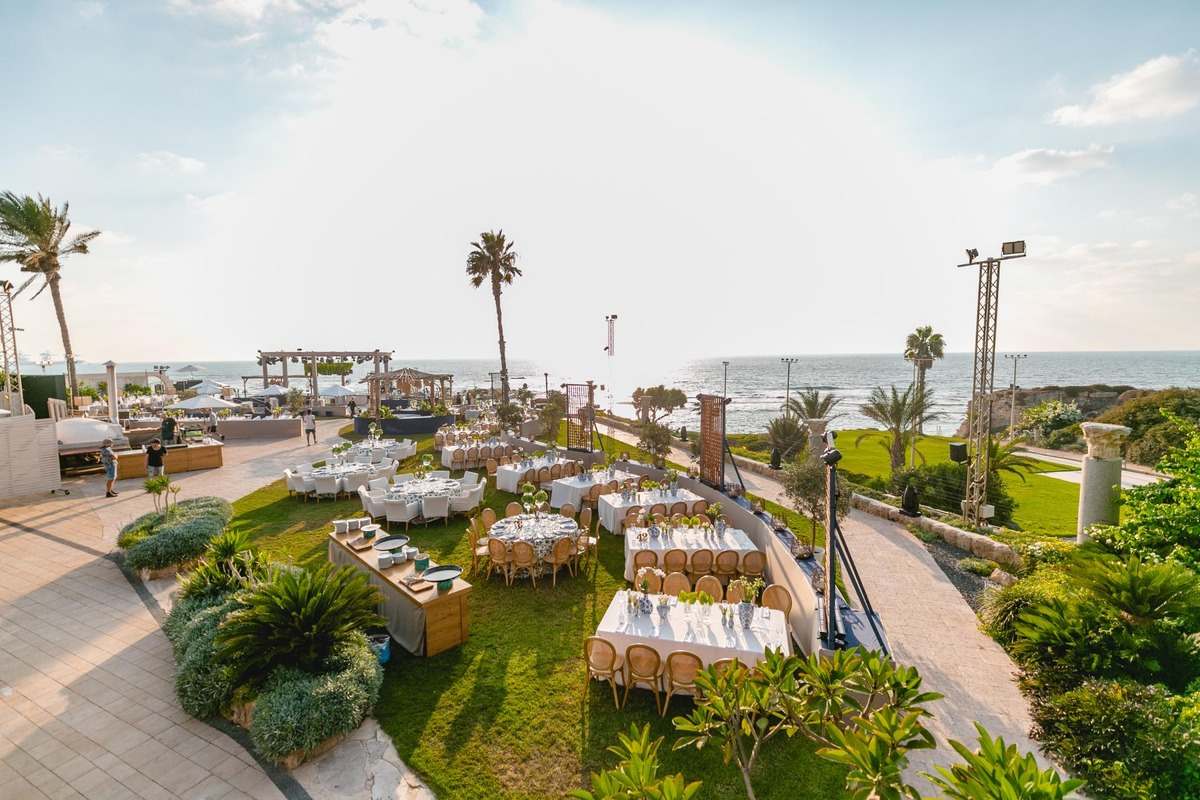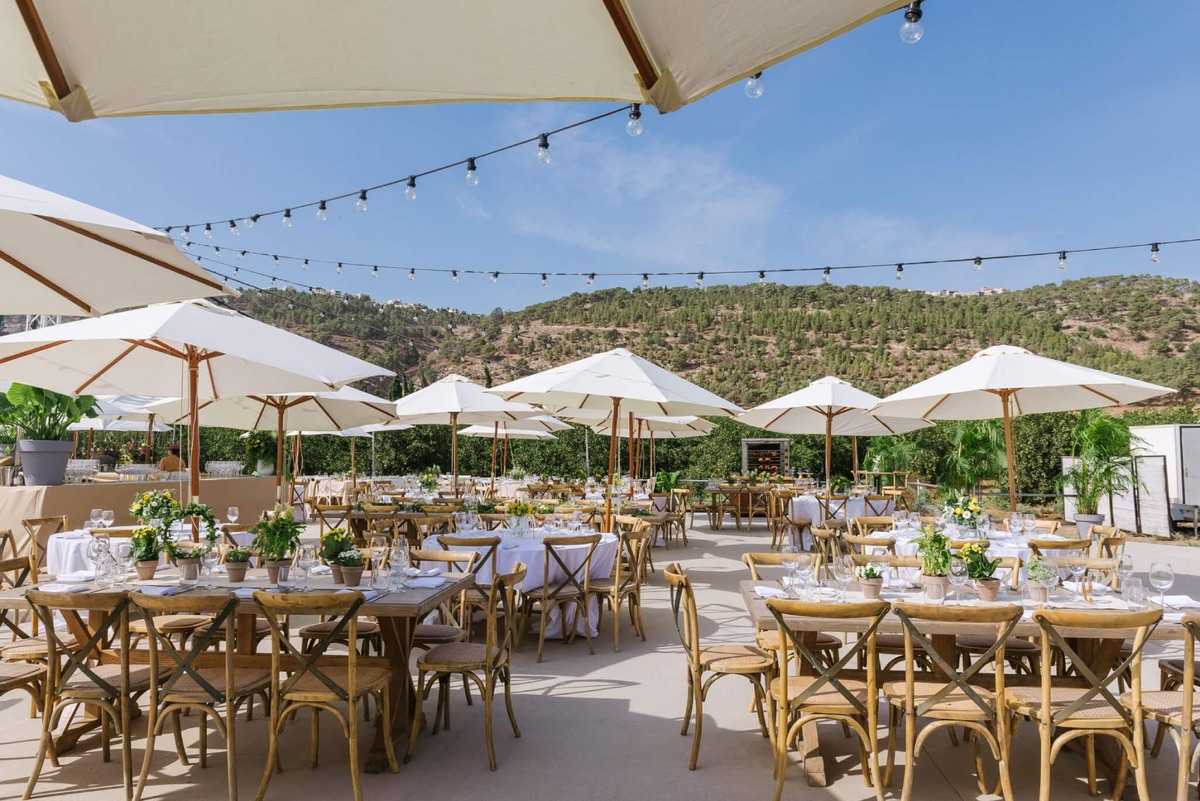
Whether it’s a wedding, a bar mitzvah, a family celebration or a corporate event, when it comes to a concept event, the process of selecting the production company should be professional and based on clear criteria. This is how you will identify the highest quality and most professional company – whose people will walk with you hand in hand, until the vision is realized.
The differences between a standard production company and a company to produce concept events are substantial. Standard production companies specialize in the logistical organization of events: booking a hall, coordinating catering, arranging seating and managing a schedule. The result: an organized and functional event, but not necessarily an experiential, special or unforgettable one.
A company to produce concept events brings a completely different approach to the table. It specializes in creating an integrated experience built around a central idea. Every element of the event – from the physical design to the menu – is tailored precisely to the chosen uniform concept. The goal: creating an experience that conveys organizational messages, strengthens company culture, and remains in the long-term memory.
The main difference: Producing concept events requires a multidisciplinary team that includes creatives, designers, experience specialists, and logistics producers. The company needs to deeply understand your vision – whether it’s a business brand, a couple’s personal story, or a significant moment in the life cycle.
7 professional questions that will help you choose the production company
1. Request for documentation of the full work process on a similar project
The purpose of the question: Assess the company’s ability to manage a project similar to yours from end to end.
Ask to see not only final products, but the entire process: initial “brief” documents, mood boards (inspiration boards), work plans, technical drawings, and execution documentation. If, for example, you are planning a wedding in a “Big Gatsby” concept with a 1920s style, ask to see a similar wedding project. Alternatively, if it is a corporate event on the subject of innovation, look for concrete experience in technology events. A professional company will be able to present a documented and transparent process.
Indicator of problematicity: A company that only presents final images without context or process documentation.
2. Identifying direct contacts and their expertise
Purpose of the question: Understanding the team structure and relevant experience.
It is important to know who will be responsible for the creative aspect, who for logistical management, and who will be present on the day of the event. Ask to see CVs and portfolios of key team members.
Indicator of problematicity: Refusal to reveal the identity of the team or a promise that “a representative from our side will take care of everything”.
3. Question about crisis management and problem solving
Purpose of the question: Examining practical experience and professional flexibility.
Producing concept events is an extremely complex matter, with unexpected problems being the norm. An experienced company will be able to tell you about specific cases where they had to solve problems in real time, and will explain the thinking process.
Indicator of quality: Open-ended answer with concrete examples and analysis of the lessons.
4. Defining criteria for measuring success
Purpose of the question: Understanding whether the company thinks in terms of significant results.
A quality production company will talk about real impact: At corporate events – strengthening organizational culture, motivation and employee retention. At private events – creating an unforgettable moment that is tailored exactly to the clients’ measurements, and accurately tells their personal story, the guests’ feelings and the emotional atmosphere. In any case, the discussion should be about the experience, not just about logistical aspects.
Indicator of problematicity: General answers such as “that everyone enjoys” without metrics or in-depth thinking.
5. Clarifying the full details of the engagement agreement
Purpose of the question: Preventing financial and legal misunderstandings.
The contract should include: a precise breakdown of all services, payments and schedules, definition of responsibilities for external suppliers, insurance coverage, cancellation and change procedures, and a detailed description of deliverables.
Indicator of problematicity: Avoidance of detailed documentation or a promise to “take care of it later.”
6. Description of event day management
Purpose of the question: Assess the level of professionalism and operational readiness.
A professional company will present: a detailed schedule of the setup and teardown processes, clear job descriptions for each team member, internal communication procedures, an emergency plan for cases of problematic weather or technical malfunctions, and a list of contacts for each supplier.
Indicator of quality: A detailed document that includes: a precise schedule, division of responsibilities among team members, and checklists for each stage.
7. Request for a description of the most challenging and original project
Purpose of the question: Assess creative ability and thinking outside the box.
This question reveals the range of the company’s capabilities. A company with extensive experience will be able to tell about unique concepts developed by the company, about challenges solved, and about creative thought processes.
Quality indicator: A detailed story with an emphasis on the process of developing the idea and its execution.
Stages of the process of working with a company for producing concept events
Stage 1 – Creating a brief and formulating a concept (1-2 weeks): Meetings with the creative team. At corporate events: Understanding the brand and values. At private events: Getting to know the main characters celebrating and their personal stories. Formulating the concept and presenting it using a mood board and a visual presentation.
Stage 2 – Detailed planning (2-4 weeks): Choosing a location, planning a set and design, a unique menu, attractions, lighting and sound, producing graphic materials, a detailed budget and choosing suppliers.
Phase 3 – Approvals and Execution (4-8 weeks): Coordination with suppliers, ordering of decor items, production of materials, inspections and assessments, approvals and adjustments.
Phase 4 – Event Day: Set up, running the event according to schedule, handling real-time issues and orderly dismantling.
Identifying a professional company versus an unsuitable one
A quality company – characteristics of its character:
- Asking in-depth questions about the client and the event
- Presenting challenges and risks transparently
- Ability to say “no” to unrealistic requests
- Documented work process with checkpoints
- Verified recommendations from previous clients
A company to avoid:
- Promising you mountains and hills, without understanding the complexity
- Does not present a structured work process
- Avoids detailed agreements
- Unable to present a relevant portfolio
In conclusion, this is the way to choose a company to produce concept events
Choosing a company to produce concept events is a significant decision – whether it is a wedding, bar mitzvah, family celebration or corporate event.









